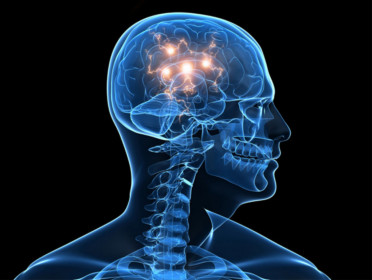Parkinson’s Disease: Not Just for the Elderly! The Shocking Facts

Parkinson’s Disease is a degenerative disease that affects predominantly older white men. It does hit younger people too, and over this blog we will show famous people who were diagnosed with it at an early age, the symptoms of the illness and what can be done if you get it.
Hollywood actor Michael J Fox was diagnosed with Young Onset Parkinson’s Disease in 1991 aged just 29. From focusing on his career, he has used his high profile and contacts to get research done into this progressive and debilitating illness.
(Source: warcc)
Seven years earlier, the world’s most famous boxer Mohammed Ali was diagnosed with the illness aged 42. The stereotype that Parkinson’s Disease is an illness of the elderly is just that, a stereotype.
According to the UK’s NHS information website NHS Choices, “The average age for the symptoms to start is around 60. Although around 1 in 20 cases first develop in people aged under 50.” This is in cases called idiopathic Parkinsonism, which is Parkinson’s Disease that has no cause from identifiable sources such as psychiatric medication.
The disease seems to hit white men in the greatest proportion. A 2010 study suggested that it affects 96 per hundred thousand white men in the US but only 46 per hundred thousand Asians for example.
How do you know if you have it? The primary symptoms of Parkinson’s Disease are rigidity (stiffness of limbs), tremor (the classic shaking you see) and postural instability (the person can lose their balance while walking). There is no cure for the illness which is progressive but doesn’t kill you in its own right.
(Source: NHSChoices)
It is known that a part of the brain called the substantia nigra becomes damaged over time with the onset of the illness. However diagnosis isn’t as simple as a brain scan as this only becomes obvious as the illness gets more serious.
There is no known cause of idiopathic Parkinson’s Disease. There is nothing you can do to avoid it in the way you would stop smoking to reduce your chances of lung cancer for example. Where research suggests that brain injury can contribute to your chances of getting it (which might explain Mohammed Ali’s condition) the research was not absolutely clear.
There is no cure of the idiopathic form of the disease. One treatment prescribed by the UK’s NHS is a medicine called levidopa but it only works for the first five years of treatment.
Research is taking place into something called Deep Brain Stimulation. This is where an electrode is implanted into the brain and small pulses are sent into the brain. According to Michael J Fox’s website this is only good for people who have responded to levedopa medication in the first place yet still suffer other symptoms.
(Source: ClevelandClinic)
For the most part, after a protracted fight, the sufferer will get ever more disabled. This is where it is important to make modifications to their home.
It is important to remember that just because their body becomes damaged, their mind isn’t by Parkinson’s Disease. By enabling them to get around their home, a semblance of normality and independence can be maintained. Being able to make a cup of tea is important to someone who is aware they need help in so much of their lives. Look at kitchen modifications and things to help them use the bathroom and shower.
As the illness progresses, so being able to go upstairs to their bedroom or toilet helps them in their mind – they don’t feel dependent on their loved ones or carers. Get stairlift advice from Acorn. In giving your loved on their independence so they have control in their world which is important to someone who may have been afflicted by such an illness for many, many years.
This guest post is brought to you by Acorn Stairlifts, who for over 30 years have been installing stairlifts all over the world.
